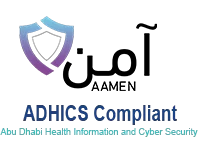Lisinopril belongs to a group of drugs known as angiotensin-converting enzyme (ACE) inhibitors.
It is used to treat high blood pressure (hypertension) in adults and children who are at least 6 years old. It is also used to treat congestive heart failure in adults, or to improve survival after a heart attack.
How does it work?
Lisinopril inhibits an enzyme called angiotensin-converting enzyme (ACE), an enzyme involved in the production of angiotensin II which:
- is a powerful vasoconstrictor (a substance that narrows the arteries).
- stimulates the release of the hormone, aldosterone, from the adrenal glands which increases blood pressure.
By inhibiting this enzyme ‘ACE’ , lisinopril dilates (opens up) the arteries, and reduces how hard the heart has to work to pump blood around the body which lowers blood pressure.
Precautions and side effects
Don’t take Lisinopril if you are pregnant or trying to get pregnant as it may harm your fetus, make sure to inform your doctor as soon as you know that you are pregnant.
Always ensure to inform your doctor about any other existing health conditions you maybe experiencing like kidney disease, or any other medications you maybe taking like Ibuprofen or Aspirin and supplements like potassium supplements so the necessary actions can be taken to protect you.
As we mentioned earlier in our blog, Hypertension is known as ‘Silent Killer’ since it isn’t associated with any symptoms so keep taking your medication even if you feel well.
If you are considering to take Lisinopril, you may experience:
- A headache and dizziness (the dizziness may be due to the blood pressure-lowering effect of lisinopril and may be more apparent when going from a lying down to a sitting or standing position). Dizziness may also increase the risk of falls
- A dry, persistent cough. Blurred vision, sweating, urine changes, and increases in creatinine and potassium may also occur so make sure you stay hydrated well
- Allergic reactions, including angioedema (swelling of airways and facial areas), are rare, but possible after lisinopril administration. Contact your doctor immediately if you see any signs of swelling in your face, throat or lips.









